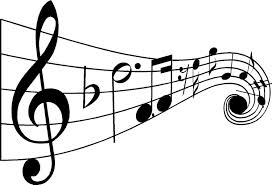Tags
brain, classical, listening, Muse, Music, pop music, something in the water, trigeminal neuralgia, working, writing
We often hear people talk about their muse. But, what the heck is a muse anyway? So I looked it up, and then I remembered I actually did know this. Hey, it’s a sunday afternoon and I’m a bit tired after a big weekend.
The Muses, (Ancient Greek: Μοῦσαι, moũsai:[1] perhaps from the o-grade of the Proto-Indo-European root *men- “think”[2]) in Greek mythology, poetry and literature, are the goddesses of the inspiration of literature, science and the arts. They were considered the source of the knowledge, related orally for centuries in the ancient culture, that was contained in poetic lyrics and myths.
I’m pretty sure we all know what music is, but just in case.
Music is an art form whose medium is sound and silence. Its common elements are pitch (which governs melody and harmony), rhythm (and its associated concepts tempo, meter, and articulation), dynamics, and the sonic qualities of timbre and texture. The word derives from Greek μουσική (mousike; “art of theMuses“).[1]
Anyone see a theme developing here?
I like to make a playlist of music for when I’m thinking about, planning and writing a story. I’ll put it on my iPod and play it frequently during the long and winding process of writing, editing and polishing a manuscript that will one day be a published novel.
Sometimes I’ll put one song on repeat while writing a particular scene that the music resonates with. Often I’ll put the 20 – 30 song playlist on a loop and within a few bars of the first song I’ve zoned out and don’t hear the songs at all. I don’t know why, but I find writing easier with the music, whether I actually listen to it or not.
This conundrum piqued my interest, so I headed off to Google, as one does. Apparently music moves the brain to pay attention. But I believe it also encourages us to get into a rhythm. I’m sure some of you go to the gym. I don’t, preferring walking the dogs and playing tennis. But when I use my elliptical machine I play up beat music and find that, intentional or not, my body tries to keep in time with the beat. So when I played something like Flo Rida’s “Good Feeling” I nearly killed myself trying to keep up. (one of my goals is to lose weight, you can read my goals here).
I did a little experiment, and did a few typing sessions with different songs to see how it effected my writing. I found that the more regular and up beat the rhythm the faster I typed. I was also more accurate. Interesting.
A few years ago I had a very bad bout of Trigeminal Neuralgia and could’t stand music at all. It would make me feel sick and oftentimes would set off an attack. This aversion to music lasted about 5 years. The only music I listened to in this period was classical, and the only time I listened willingly was when I was doing bookkeeping. Again, once I started working, I would barely hear the actual music. I’m happy to say that I can once again listen to everything from pop tunes to classical. I must admit I still don’t like Death Metal, but that’s probably just because I have a degree of good taste. Just kidding – actually, no, I’m not, but I don’t mean to offend anyone. You can listen to it as much as you like.
In November 2012 I wrote Something in the Water, originally the story was called Sweet Solomon but when I came across Brooke Fraser’s “Something in the Water” it fit my story so well that I changed the name and added the song to the playlist.
From my afternoon of researching and terribly clinical testing, I’ve found that Music and the Muse work hand in hand. Music is good for our brain processing. So if you’re having trouble with a wayward muse, perhaps you should give her/him something to listen to.
Do you listen to music while working, working out or writing? Or do you find the exact opposite and can’t stand the distraction? If you do use music, what kind do you listen to while writing or working. Do you use different genres for different tasks. I love to hear from you, so please share your thoughts.



Hi Paula, interesting reading, obviously our conversation earlier today prompted you into action! I love your perspective on things 🙂
Thanks for dropping by Julia. Our conversation did inspire this blog in part, but mostly your blog post about music in the classroom was the springboard into thinking about why does music help me write. And because I wrote this post, I still have one up my sleeve for next time 😀
Glad to be of service, I should now be doing some work about to get the laptop out! Really,I am, yep, I will, maybe? Or sleep?
Have a good one.
I’m the opposite I think Paula. I like peace and quiet when I write. If I put music on I find I listen to the lyrics and it distracts me. That said, I do love listening to good music and good lyricists and I learn from them. I love how they write with emotion in very few words. Very interesting post – thank you!
Hi Lily, I agree, songs can be a good source of emotional research. It’s funny, if I try writing to a new song, I get distracted, but the playlist that I’ve have going on a loop sort of turns into white noise. Thanks for sharing your thoughts.